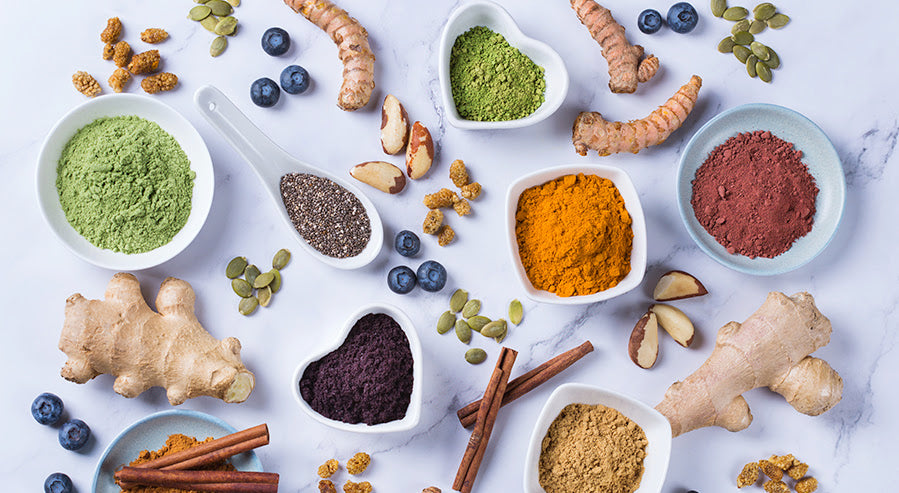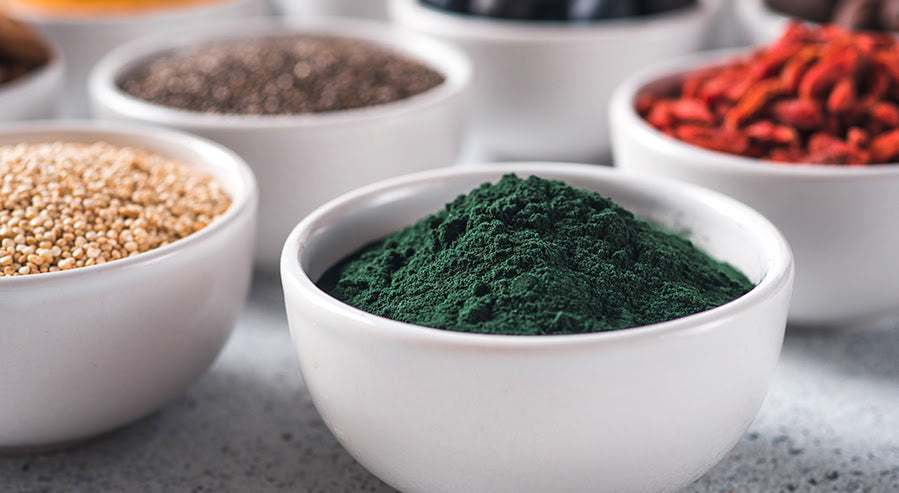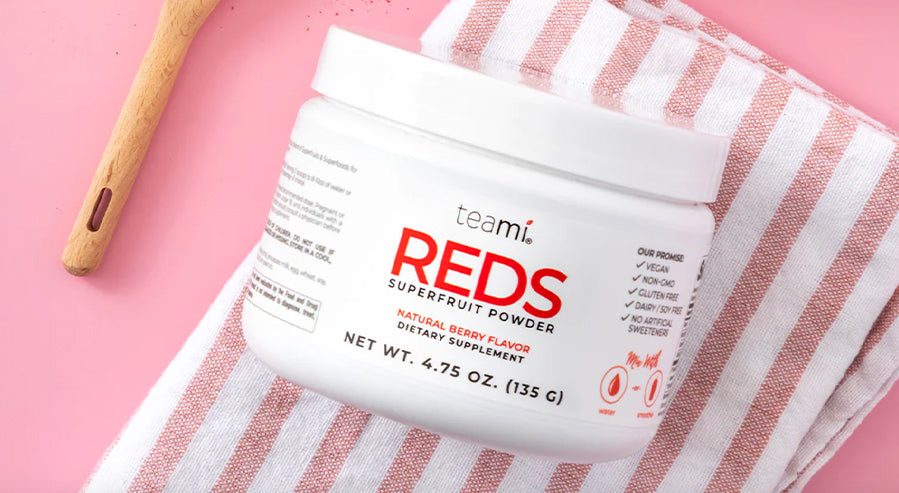The term "bioavailability" basically refers to how quickly and easily something can be absorbed and put to work by our bodies. That includes things like nutrients. The importance of superfood powders comes into the picture here. So, what are superfood powders? Basically, they're dense extracts from fruits, veggies, and other plant-based foods known for their high nutrient value. Health-conscious people all around the world love them because they're packed with vitamins, minerals, and antioxidants. But remember, it's bioavailability that really counts.
Imagine this situation: nutrients are plentiful in a substance, but its bioavailability is low. It's like having a treasure chest you can't unlock! It's all there, but your body can't use it. So, the real value of superfood powders lies both in the number of nutrients they have and in how well your body can absorb and use them.
This begs the question: does your body really get all the benefits these powders have to offer? Well, let's talk about this!
First: How Nutrient Absorption Works
Let's talk about how our bodies interact with what we eat. Two big concepts here are bioavailability and how nutrients get absorbed. Both of these play a big part in how diets work. You might ask - what is nutrient absorption? Well, that's the path nutrients take from our gut to our bloodstream. What we eat can really change this process.
Think about vitamins that dissolve in fat - like A, D, E, or K. They need fat to get absorbed efficiently! But on the flip side, some things we eat can actually prevent the absorption of minerals. Take oats and whole grains, for example. They have these things called phytates, which might prevent some minerals from being absorbed.
Thinking about the chemical makeup of nutrients? Well, they matter a lot! Take iron, for example. We find something called heme iron in meat, and our bodies love it; they absorb it incredibly well. But when it comes to the iron found in plants, it's a bit of a different story.

Let's talk about nutrient competition! It's an interesting idea, isn't it? Nutrients like iron and zinc take the same path in our bodies and end up battling for absorption. It's pretty simple, really: if we absorb more of one, we end up absorbing less of the other.
Make sure not to forget one important point here - our current nutrient levels affect absorption rates. So, if your body needs more of a certain nutrient, it'll absorb it easier; if there's lots of it, not so much.
The bond between bioavailability and nutrient absorption is important for getting the maximum health benefits from our food. A nutrient might be bioavailable, but if your body doesn't absorb it well, it's not doing you much good. So, what's the best way to boost nutrient intake? In my opinion, you have to know your body's unique dietary needs. And hey - don't shy away from getting help from a pro like a dietitian or nutritionist. Honestly, they could turn out to be a real game-changer!
Why Bioavailability is So Important
Bioavailability in something like superfood powders helps your body make the most of the nutrients they offer - the higher the bioavailability, the more goodies your cells get.
People often rave about superfood powders as nutrient gold mines. But I'm talking about about how many nutrients they have - what really matters is how easily your body uses them. Sure, some supplements are loaded with vitamins and minerals, but remember this: if your body can't absorb them, they're not going to do much good.
So, how well do superfood powders work? Well, that differs based on how they're made. Things like heating, cooking, and fermenting can either improve or mess with nutrient bioavailability. My advice? Stick to raw or close-to-natural superfood powders. That could give the nutrients a better chance.
Think about the type of nutrient, too. Like, some vitamins need fat to work well in your body. Mix a fat-free superfood powder with a vitamin-rich one, and you might not get the full benefits.

Why do you need to worry about bioavailability? I'll tell you why. It lets you make smarter choices about the supplements you take. I'm talking about looking at what nutrients they have and how well your body can use them.
So, if you're thinking about getting superfood powders, take a moment to think about their bioavailability. The real value in nutrition comes from how well nutrients are absorbed, right? Make every sip count!
What Are the Health Benefits?
Superfood powders pack a punch for your health - that's a well-known fact. They're full of rich nutrients our bodies crave. What really zeroes in their effectiveness? Bioavailability is important - it's how your body soaks up and uses those boosting compounds found in the powders themselves. The whole game changes when our bodies get to make good use of these nutrients.
Take turmeric as an example; it's usually part of the mix in these nutrient-heavy powders. This spice is home to curcumin - very useful for its anti-inflammatory and antioxidant effects. But here's a little snag: curcumin doesn't get absorbed too easily in our gut. To increase its absorption, we usually mix it with black pepper, which has a neat little compound known as piperine, which improves curcumin's absorption by a cool 2000%.
Then, we have beetroot powder - a firm favorite in the superfood scene. What's its main trick? It's loaded with dietary nitrates. Once your body works its magic and absorbs these nitrates, they convert into nitric oxide. This useful little molecule expands your blood vessels - it leads to improved flow of blood and oxygen. If the nitrates do their job right, they can help you perform better physically and, sometimes, even take down your blood pressure a notch.

It's pretty tempting to just sprinkle these useful powders over our food and imagine the health points stacking up, right? It's not that simple. Just like we said before, it all falls onto bioavailability. Even the richest superfoods can't do their job if the nutrients don't get absorbed properly. And here's the kicker: the way they're processed can make or break the preservation and bioavailability of these powerful compounds. Do you know how heat exposure during the drying process can lower a nutrient's quality? That's what I'm talking about.
Take spinach powder as an example. It's loaded with iron, which can pitch in for your immune health and even give your skin a glow. But there's a little catch: the plant-derived iron (non-heme iron) in it isn't absorbed as easily as the iron you get from animal products (heme iron). So, you'll end up absorbing less iron from spinach powder than what you'd absorb from meat.
Find the Economic Value
People buy things looking forward to the awesome things the product says it will do. But we run into trouble if our bodies aren't really taking in all the good things in those superfood powders. Guess what that's called? Reduced bioavailability. So you have to wonder, are people really getting what they're paying for?
Picture this: low bioavailability implies that users are wasting most of what they bought, which is like losing money straight away. The less your body can take in that good thing, the less valuable the product becomes. It's kind of like paying for a full tank of gas but only getting to use half of it,
Lost money isn't even the only problem! Think about how you'd feel if a product, like a workout booster, for example, didn't live up to its hype. You'd feel tricked, wouldn't you? And then, you might start looking around for other options from different brands.

Bioavailability - yup, that's a big word, but it's also a big deal. I'm talking about your health; it's about your pocketbook as well. It affects what you think of a product, how much you think it's worth, and whether you're likely to get it again in the future. Also, it can change how everyone sees the quality of the superfood powder. That's why it's super important for the people who make these things to make sure their products have high bioavailability. We're talking about people's health here and the reputation of their brand!
Personally, I think you should think about the actual benefits the product can offer. And those benefits really hinge on bioavailability. In my opinion, it's the make-or-break factor for these kinds of products.
Optimize Product Formulation
Making nutrients accessible to the target tissue after you administer them is called bioavailability enhancement, and there are loads of cool ways to achieve it. Here's a fun fact: nanotechnology can boost it! Put basically, nanotechnology plays around with materials on atomic, molecular, and supramolecular levels. Why does this matter? Because this tech can turn nutrient particles into nano size, which helps your body absorb them.
Bioavailability benefits quite a bit from the use of colloidal systems. Imagine two parts to these systems; the first one called a discontinuous phase (or dispersed phase), involves tiny particles of a substance hanging suspended in a second substance, the continuous phase. In layman's terms, these systems keep particles from sticking together, which in turn helps your digestion and nutrient absorption.

Let's talk about specific nutrients. You can boost the bioavailability of some nutrients by messing around with their molecular structures. Have you ever heard of curcumin? That's the kick in turmeric. Normally, curcumin is hard to digest, but by changing the structure of its particles, you can make it much easier to absorb.
Bioperine is pretty cool, too. You may know it better as black pepper extract. I think it's neat how Bioperine can stop your liver from changing substances into metabolically inactive forms. Thanks to this trick, nutrients can get into your bloodstream faster after you take them.
As important as it is to boost ingredient formulation, I also believe it's important to keep an eye on the overall quality of superfood powders. This means rigorous quality control, thorough purity tests, and a firm no to adding any harmful substances.
Get this: understanding bioavailability is important to get the most out of your superfood powder formulations. With the right tech and tricks, you can unlock the potential benefits of these powders. That's why this is a want-to word; it's important to make sure the health benefits superfood powders promise are the ones they deliver. What is the link between superfood powders and real health benefits? Bioavailability - it's that important!
Interactions with Other Foods
Understanding how your body takes in nutrients is pretty really important. Important factors are at play; for example, some food combinations can have a huge effect on this intake. You see, certain properties in food either help or block your body from absorbing certain nutrients. Take calcium and iron as an example - calcium can actually reduce how much iron your body takes in! If a superfood powder was filled with iron but you ate it alongside a calcium-packed snack, the iron absorption may be cut short. That means you might not get the health benefits you expected.
Let's look at something that boosts nutrient absorption. Have you heard of curcumin? Found in turmeric, this anti-inflammatory compound doesn't get absorbed into the body all that easily on its own. Mix it with black pepper - which has this thing called piperine - and suddenly, your body can take in curcumin 2000% better! Fat-soluble vitamins like A, D, E, and K also require some help. You need dietary fats so your body can absorb these nutrients effectively.

What does all this mean for superfood powders? Well, not being aware of how nutrients play off each other can mean missing out. You might not get the maximum benefits these products offer. Let's be honest: it isn't as simple as gulping down a superfood powder. You have to be pretty sharp with their use to get the most nutritional bang for your dollar. The people making these powders need to play their part, too. They should choose their ingredients wisely and let you guys, the consumers, know the deal.
I believe that the more you know about food combinations, the better equipped you'll be to fully gain from superfood powders. Remember this - it's important to know which foods can boost or slow down nutrient absorption. Those nutritional powerhouses in the powders? Their full potential can be unlocked if you're smart about it. Ignore these interactions, though, and the effectiveness of the powders could take a hit. And we don't want that, right?
Finding The Perfect Blend
Your body's speed in taking in nutrients and your overall health go hand in hand when we talk about health. You can boost your health by just increasing your nutrient intake. I recommend using products from us at Teami to enrich your nutrient use because they're made from powerful superfoods. Whether you want to keep your weight in check, sleep better, or strengthen your immune system, Teami was built to cater to your needs with a bunch of natural ingredients.
Let's take a moment to look at the Reds Superfruit Powder. It's made from a refreshing mix of fruit extracts and antioxidants, along with adaptogens. The whole idea behind it is to boost your energy naturally, clear up your mind, and beef up your immune system.

Think of the Reds Superfruit Powder as a health-boosting drink. It has a low-sugar, caffeinated mix packed with over 20 superfoods - including antioxidant-loaded red, purple, and blue fruits and veggies. You have heavy hitters like anthocyanins and carotenoids in there. This powerful mix is a favorite for fighting off that afternoon slump, replacing it with energy and focus instead.
So, what's stopping you? This Teami Reds Superfruit Powder is a superfood - it's your ticket to an especially healthier life. Ditch those hard-to-swallow supplement pills for this easy-to-use, tasty natural mix. It fills your body with scientifically backed, natural ingredients. A healthier, refreshing life is within your grasp - find your perfect mix at our store!